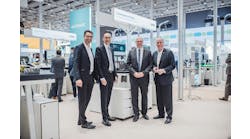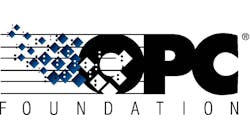Yokogawa Electric Corp. released Mar. 21 its OpreX Robot Management Core software as part of its OpreX asset management solutions. It can run onsite or in a cloud-computing environment.
OpreX Robot Management Core integrates management of various robots that perform maintenance tasks usually carried out by humans. In addition, when connected to a plant’s control and safety systems, it uses manufacturing site data acquired by robots, sends back procedural instructions to those robots, and takes the first steps toward autonomous plant operations.
OpreX Robot Management Core’s two primary functions include integrated robot management and using connections with other systems.
First, it enables unified registration, management and operation of multiple types of robots. It supports the Spot four-legged robot from Boston Dynamics and the EX ROVR autonomous, explosion-proof, plant inspection robot from Mitsubishi Heavy Industries. The software’s management screen, which allows users to check the status of individual robots, is viewed in a web browser, enabling remote operations.
Missions can be preregistered, and either manual or scheduled execution can be selected to have robots perform plant patrols and inspections. Images, video, audio and other data collected by robots during patrols and inspections are saved in a database, and can be used by other applications. Inspection tasks, such as visual confirmation of meters and the recording data previously done manually by plant personnel, can now be done automatically by OpreX Robot Management Core when using OpreX Plant Image Analyzer. This is a new product that can perform AI-based analysis of images of analog instrument displays and level meters, and automatically record them as process data.
Second, to reach other systems, OpreX Robot Management Core links to Yokogawa’s OpreX Collaborative Information Server. This allows data collected by robots to combine with data from control systems, safety instrumented systems (SIS) and integrated asset management systems for centralized management. This means application development and data analysis can also be performed easily, not just for maintenance tasks, but other operations, too. If an interface for robot utilization is built on the OpreX Collaborative Information Server, it enables the dispatch of robots to plant sites and performance of safety inspections based on alarms detected.
In the future, support will be added to OpreX Robot Management Core software for a wider selection of robots and drones. Yokogawa will also develop applications that use artificial intelligence (AI), and enhance functions to send robots instructions linked to control system work procedures.





